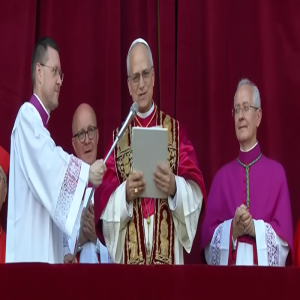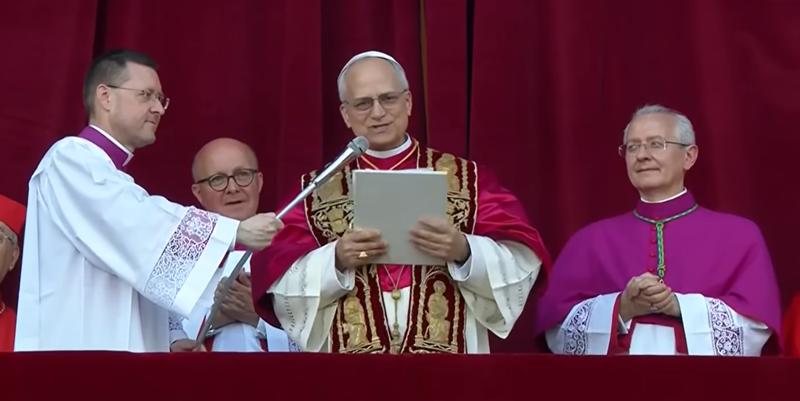

What happens in the Vatican concerns not only the world's 1.4 billion Catholics but everyone else, too, given the Church's enormous influence in global politics. The Holy See is a member state of the United Nations, but more importantly, its titular head also carries enormous weight in terms of the policies he espouses. There is, therefore, universal and keen interest when a new Pope is chosen, and thus it has been over the past momentous week.
Cardinal Robert Prevost, previously a Bishop in Peru, was elected Pope on May 8 by the College of Cardinals, and he has chosen to name himself Leo XIV, and that is a tremendous signal of hope for two reasons:
He succeeds Pope Francis (Argentinian Cardinal Jorge Mario Bergoglio), who named himself after Saint Francis of Assisi and made waves with several liberal initiatives, such as including a few women in powerful positions, though not going the whole hog, speaking up for migrants and the Palestinians, and firmly placing the Catholic Church against the death penalty.
By naming himself after Pope Leo XIII, the incumbent raises hopes of a left-leaning Papacy. Leo XIII became known as 'the workers' Pope' because, through his 1891 encyclical Rerum Novarum, he spoke of rights to fair wages, working conditions, and trade union rights. The Leo XIII Papacy lasted from 1878 to 1903, a period of intense industrial activity in Europe and North America, and he rose to the challenges that era posed.
Historian Heather Cox Richardson said in a Facebook post earlier this week:
"In the midst of the Gilded Age, Leo XIII defended the rights of workers and said that the Church had not just the duty to speak about justice and fairness, but also the responsibility to make sure that such equities were accomplished. In his famous 1891 encyclical Rerum Novarum, translated as 'Of New Things,' Leo XIII rejected both socialism and unregulated capitalism, and called for the state to protect the rights of individuals.
"Prevost's choice of the name Leo invokes the principles of both Leo XIII and his own predecessor, Pope Francis. In his lifetime, he has aligned himself with many of Francis's social reforms, and his election appears to be a rejection of hard-line right-wing Catholics in the US and elsewhere who have used their religion to support far-right politics.
Here is an insightful paragraph from Rerum Novarum itself:
"When work people have recourse to a strike and become voluntarily idle, it is frequently because the hours of labour are too long, or the work too hard, or because they consider their wages insufficient. The grave inconvenience of this not uncommon occurrence should be obviated by public remedial measures; for such paralysing of labour not only affects the masters and their work people alike, but is extremely injurious to trade and to the general interests of the public; moreover, on such occasions, violence and disorder are generally not far distant, and thus it frequently happens that the public peace is imperilled. The laws should forestall and prevent such troubles from arising; they should lend their influence and authority to the removal in good time of the causes which lead to conflicts between employers and employed."
It is tempting to think of Pope Leo XIII as having been a Keynesian before John Maynard Keynes came along to save capitalism from its worst inclinations and to ensure that working populations had sufficient purchasing power to keep the economies afloat. It is to be hoped that Pope Leo IV will take aim at Trumpism and other forms of fascism. In fact, he has given ample indications of readiness to do so.
In his first Urbi et Orbi (To the City and the World) address to the thousands of clergy and laity gathered at St Peter's Square, the new Pope stressed the need to build bridges, thus indicating that he would carry forward the good work of Pope Francis.
"...Together, we must look for ways to be a missionary Church, a Church that builds bridges and encourages dialogue, a Church ever open to welcoming, like this Square with its open arms, all those who are in need of our charity, our presence, our readiness to dialogue and our love.
"To all of you, brothers and sisters in Rome, in Italy, throughout the world: we want to be a synodal Church, a Church that moves forward, a Church that always seeks peace, that always seeks charity, that always seeks to be close above all to those who are suffering."
His address was in Italian and he briefly switched to Spanish to send out a message particularly to those he had ministered to as Bishop in Peru. Interestingly, he did not utter any words in his native English. The Chicago-born had taken Peruvian citizenship.
One can be confident that Pope Leo will keep speaking out for the rights of migrants and against their marginalisation as indeed he had done even while Cardinal, as a few tweets of his criticising US policies testify.
Will he also keep speaking up for the Palestinians and especially against the plight of the people of Gaza as Pope Francis consistently did? That remains to be seen.
There is some cause for concern as to whether the new Pope will go back on some very minor reform initiatives as regards women, homosexuals, same sex couples, LGBTQ people that Pope Francis had taken.
It is to be hoped that the Cardinals around Pope Leo will allow Hong Kong's 93-year-old Cardinal Joseph Zen Ze-kiun to meet the Pontiff and put forward his reservations regarding the Vatican's growing relations with China. Cardinal Zen has been warning against capitulating to Beijing's demand to be able to appoint Bishops of its choice and against other similar demands but he was mostly restricted from speaking directly to Pope Francis.
It is also to be hoped that during the Pontificate of Pope Leo XIV, the Catholic Church will begin the long process leading to the beatification and canonisation as a Saint of Father Stan Swamy, who was institutionally murdered by the Hindutva establishment in 2021 following a long and needless incarceration in harsh conditions on trumped up charges. The intention is not to put Father Stan on a pedestal but to send a strong message to the Hindutva establishment.
There has been enormous interest globally since Pope Leo XIV addressed the world on May 8. When Polish Cardinal Karol Wojtyla was elected Pope in 1978, the College of Cardinals clearly had in mind the then crumbling Soviet Bloc. As Pope John Paul II, he most certainly hastened its demise through his uncompromising policies targeting state oppression. It is to be seen how Pope Leo XIV conducts policies in the face of rising fascism in many parts of the world, including in his native United States.